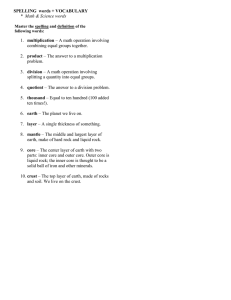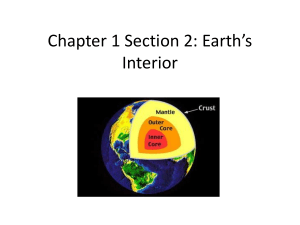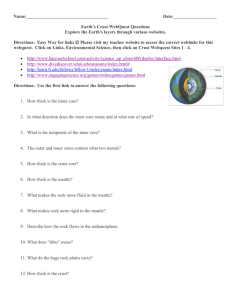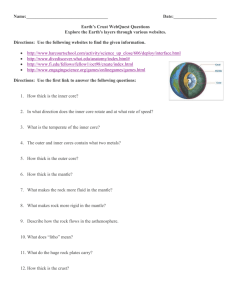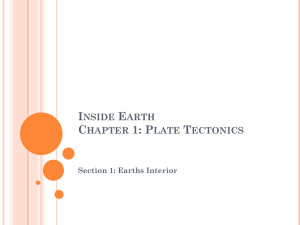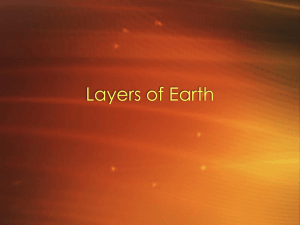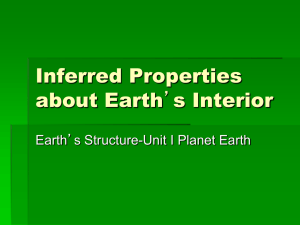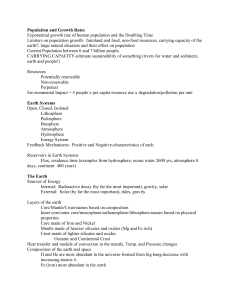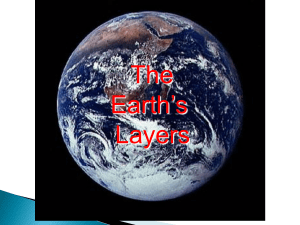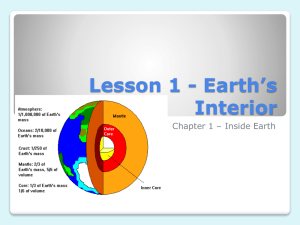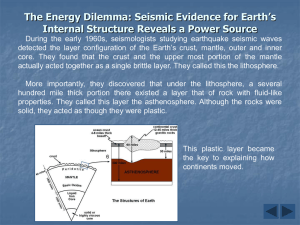earth structure worksheet key
advertisement
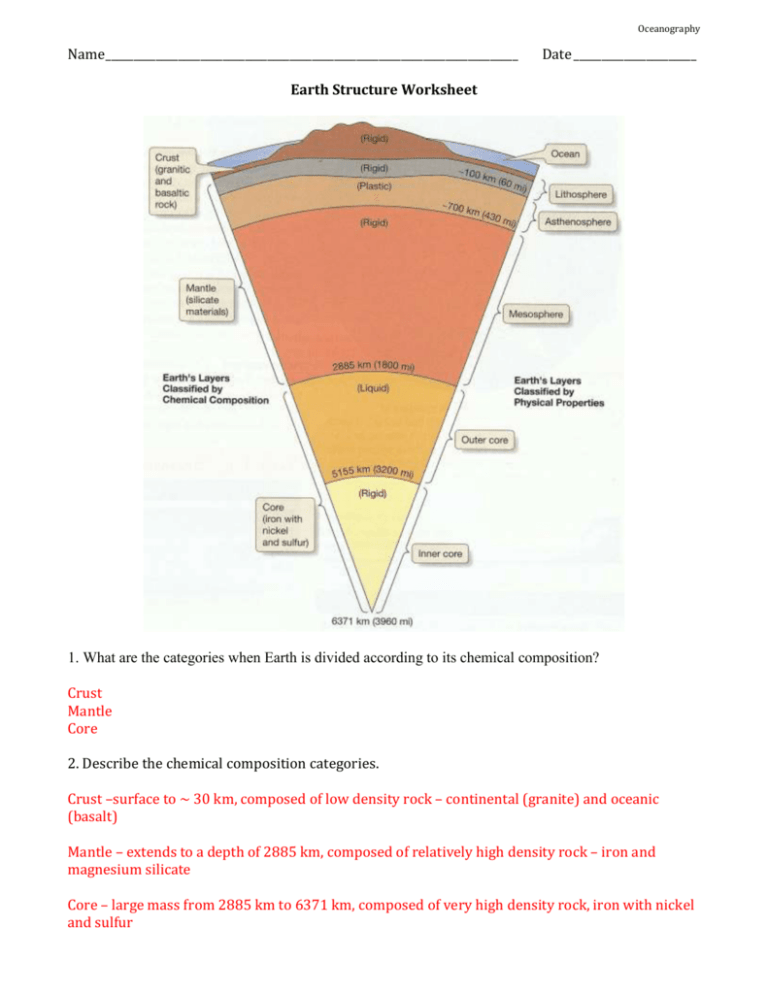
Oceanography Name __________________________________________________________________________ Date ______________________ Earth Structure Worksheet 1. What are the categories when Earth is divided according to its chemical composition? Crust Mantle Core 2. Describe the chemical composition categories. Crust –surface to ~ 30 km, composed of low density rock – continental (granite) and oceanic (basalt) Mantle – extends to a depth of 2885 km, composed of relatively high density rock – iron and magnesium silicate Core – large mass from 2885 km to 6371 km, composed of very high density rock, iron with nickel and sulfur Oceanography 3. What are the categories when Earth is divided according to its physical properties? Lithosphere Asthenosphere Mesosphere Outer core Inner core 4. Describe the physical property categories. Lithosphere – cool, rigid, outermost layer, extends from the surface to an average depth of 100 km, includes crust and upper layer of mantle. Asthenosphere – plastic (will flow when a gradual force is applied), from 100 km to 700 km, base of upper mantle, hot enough to partially melt portions of most rocks Mesosphere – extends to 2885 km to middle and lower mantle, deforms plastically, rigid due to increased pressure. Outer core – liquid, capable of flowing Inner core – rigid, does not flow due to increased pressure 5. What is the main difference between the inner and outer core? The inner core is solid and the outer core is liquid. 6. Why is the core divided into two separate categories when divided for physical properties, but not when dividing for chemical composition? The chemical make up of the outer and inner core are the same therefore chemically it is simply referred to as the core. The physical features of the core are different which is why it is divided into two parts, the outer core, which is liquid, and the inner core which is solid. Oceanography 7. Compare the oceanic crust to the continental crust. Main rock type Oceanic Crust Basalt (dark-colored igneous rock) Continental Crust Granite (light-colored igneous rock) Density 3.0 g/cm3 2.7 g/cm3 Average thickness 8 km 35 km 8. What is the difference between basalt and granite? Basalt is darker in color and has a greater density than granite.
